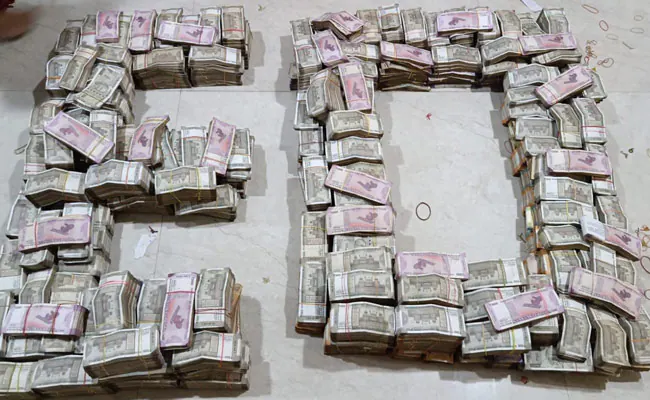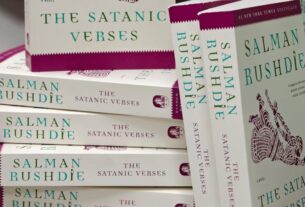Seventy-five years after India’s Constitution enshrined free speech as a fundamental right, the Supreme Court has had to remind law enforcement that it still exists. In a scathing rebuke to the Gujarat Police, the country’s top court emphasised that police officers need to understand and respect free speech, particularly when it comes to artistic and political expression.
The case that triggered this response involved an FIR filed against Congress MP Imran Pratapgarhi over a satirical poem. The Gujarat High Court had allowed the case to proceed, but the Supreme Court, unimpressed, read aloud a translation of the poem in open court and essentially asked: “How is this anything but an expression of non-violence?”
While this should have been a strong moment for free expression, the same Supreme Court sent mixed signals when dealing with YouTuber and podcaster Ranveer Allahbadia. While it allowed him to continue his podcast, it also warned him to adhere to standards of “decency and morality”—a vague directive that raises concerns about the future of digital speech regulation in India.
It’s a classic case of judicial double standards—one set of rules for poetry and political speech, and another for online creators. The ruling has sparked an intense debate about the nature of free speech in India: Is it truly protected, or does it depend on who is speaking and what they are saying?
Read: Police should value right to free speech and expression
Cops, Poetry and the Supreme Court’s Sharp Words
The Gujarat Police, like many law enforcement agencies across India, has a long and checkered history of misusing legal provisions to target critics, activists, and opposition leaders. In the case of Imran Pratapgarhi, the police filed an FIR over a poem, claiming it incited unrest.
The Supreme Court, however, saw zero grounds for prosecution. The justices publicly read the poem aloud, highlighting its non-violent themes and questioned why it was deemed criminal in the first place. Their message was clear: criticism of political figures, artistic expression and dissent are not crimes.
This ruling serves as a reminder to law enforcement agencies that they cannot weaponize legal provisions to silence dissent. The Gujarat Police isn’t alone—state authorities across India routinely file cases against writers, journalists, and activists, hoping to intimidate them into silence. The Supreme Court’s intervention here was much needed.
But just when it seemed like the court was taking a firm stand on free speech, it took a sharp turn in the Allahbadia case.
The Allahbadia Case: Free Speech, But Only If It’s “Decent”
In a separate case, the Supreme Court ruled that YouTuber and podcaster Ranveer Allahbadia could continue his podcast but warned him that content must adhere to “decency and morality.”
This is where things get complicated. The court did not define what it considers “indecent” or “immoral”, leaving it open to interpretation. Vague legal standards like these are often used to suppress digital speech, particularly against comedians, journalists, and social media influencers.
The government has already expressed interest in regulating online content, citing concerns about “vulgarity”. Free speech advocates worry that these new guidelines will be used selectively to target critics of the government while ignoring actual threats like hate speech and misinformation.
So, here’s the contradiction: When police misuse laws against a politician’s poem, the Supreme Court steps in to defend free speech. But when a YouTuber exercises the same right, the court suddenly wants restrictions on content.
The Government’s Push for “Norms, Not Censorship”
The Supreme Court has suggested that India needs “norms, not censorship” when it comes to regulating online speech. In theory, this is a reasonable approach—instead of outright banning content, there should be clear guidelines on digital expression.
But the problem is who gets to define these norms?
If history has taught us anything, it’s that laws on morality and decency always favor those in power. When the government decides what is “vulgar” or “appropriate,” it’s a slippery slope to selective censorship.
We’ve seen this before. Laws meant to regulate speech have been used disproportionately against journalists, opposition leaders, and independent voices. There is a real fear that these new digital “norms” will be weaponized against critics while shielding those in power.
International Perspective: A Contradictory Approach to Free Speech
Globally, India’s approach to free speech is being scrutinized for its inconsistencies. The Supreme Court’s defence of political and artistic speech is a welcome development, but its simultaneous endorsement of content restrictions online raises red flags.
International free speech organizations are questioning: Can India truly claim to support free expression if it enforces arbitrary digital speech regulations?
The global media has taken note of these contradictions. The Week’s Chas Newkey-Burden argued that India’s Supreme Court appears to be struggling to balance free speech with moral policing. While it strikes down FIRs against politicians, it leaves digital creators exposed to vague content restrictions.
This kind of inconsistent messaging weakens India’s credibility as a democracy that upholds free speech.
Who Gets to Decide What Free Speech Means?
The biggest question that emerges from these rulings is who defines free speech in India?
- If law enforcement gets to decide, expect more arrests for poetry and satire.
- If the government gets to decide, expect more crackdowns on online content under the guise of “morality”.
- If the Supreme Court gets to decide, expect rulings that depend on who is involved and what the content is about.
The core principle of free speech should be consistency. But right now, India’s legal system seems to be picking and choosing when free speech is worth defending.
Free Speech Cannot Be a Selective Privilege
The Supreme Court’s scolding of the Gujarat Police was a necessary step in reinforcing free expression. But its double standard on digital content regulation shows that India still has a long way to go in fully protecting speech.
If free speech is to mean anything, it must apply equally—whether it’s a poem, a podcast, or a political statement. If cops need to be educated on free speech, so does the judiciary. Laws that protect politicians but restrict digital creators will only lead to a fragmented, inconsistent, and unjust system.
Unless India makes a clear commitment to protecting speech in all forms, the Supreme Court’s assurances will remain just words on paper—easily ignored when convenient.
The Bottom Line: The SC Got It Right… and Wrong
India’s Supreme Court just reminded cops to learn about free speech—but perhaps it should take its own advice.
The ruling on Imran Pratapgarhi’s poem is a win for artistic and political speech, but the court’s stance on online content raises troubling questions.
If free speech is a principle, it must be upheld across the board—not just when it’s politically convenient. Otherwise, we risk a future where the definition of “free speech” depends entirely on who is speaking and who is listening.
And that’s not democracy. That’s selective authoritarianism.
Caste-based Reservation: 75 years on, is it time to reform or abandon?




